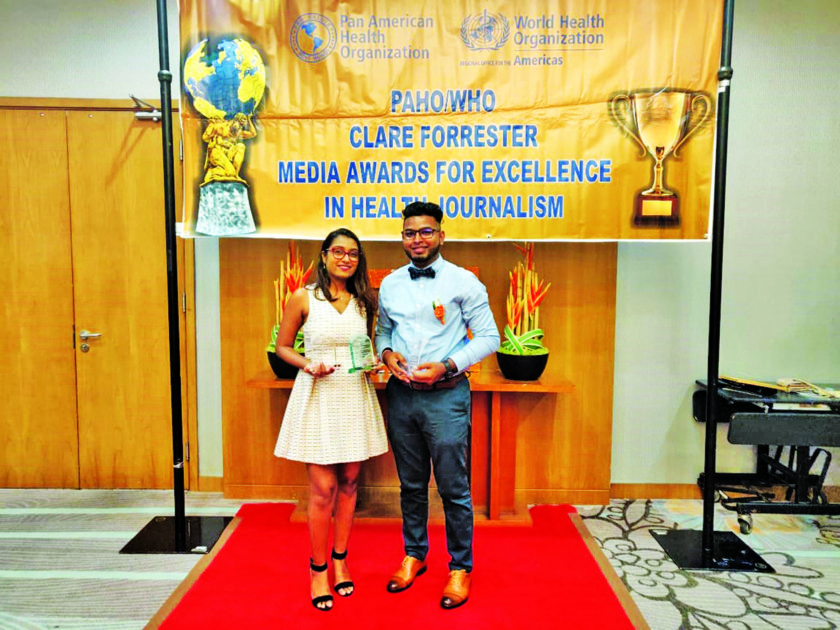
Executive Member of the Guyana Press Association (GPA) Denis Chabrol on Sunday night called on those in authority to break the cycle of preferential media access, especially when it comes to promoting matters of national interest, such as health and social issues.
His call comes in light of challenges media workers continue to face in accessing public officials for information on a number of developments and matters of national importance.
“The GPA has been informed and I have been asked to make mention of this tonight (Sunday) by a number of our colleagues who are participants in this year’s awards that they have experienced great difficulties in accessing information from the relevant Government agencies in spite of repeated efforts,” Chabrol said during his remarks at the Pan American Health Organisation/ World Health Organisation (PAHO/WHO) Clare Forrester Media Awards for Excellence in Health Journalism.
“In this regard, the GPA urges those who have been refusing to speak with members of the media from certain media houses to take corrective action.”
“Put aside your differences and preferences of media houses over others…We must find a way to break the cycle of limitations on preferential media access when one party or the other is in Government or the Opposition,” Chabrol expressed.
The Media Awards competition is an annual initiative aimed at keeping health issues at the forefront.
When it began in 2014, there were just about 30 entries. This year, PAHO/WHO received 132 submissions, of which 122 were processed due to number of challenges.
Every year, journalists, photographers and videographers are recognised for their work in the field of health journalism.
Among the winners this year are Guyana Times and Evening News assistant editors/ senior journalists, Lakhram Bhagirat and Devina Samaroo.
Bhagirat won second place for his print news story on prostate cancer which was published in Guyana Times Sunday Magazine.
Meanwhile, Samaroo won first place for best online feature and best television feature with her story on access to safe abortion services which were broadcast and publicised on the Evening News and INews Guyana.
Chief Judge, Dr Paloma Mohamed noted that the competition has been growing in volume and quality, and journalists are developing a better understanding of health-related topics.
“Journalists are developing a more sensitive and broad range of understanding of what health journalism is about and,” she said, explaining that health journalism deals with more than just “diseases” but rather, can cover matters such as migrant and climate change.



